Latest
NASS will amend electoral act to remedy weaknesses, says Lawan
Published
4 years agoon
By
Seun Owope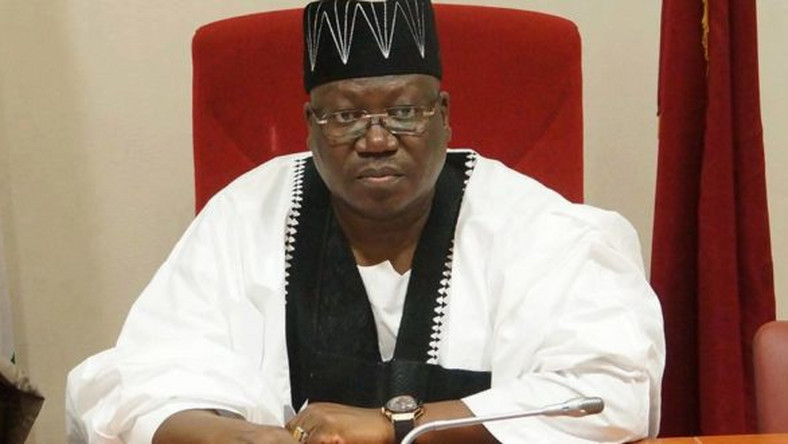
Senate President Ahmad Lawan has said that efforts will be made by the National Assembly to amend the electoral act to serve as safeguard against weaknesses identified in the law.
Lawan made this known on Tuesday at plenary, following a matter of National importance brought by Sen.Yahaya Abdullahi (PDP-Kebbi).
The senate president described the judgment by the Supreme Court on Section 84(12) of the Electoral Act as a landmark judgment that vindicates the National Assembly.
He said further amendment of the Act would strengthen it ahead of the 2023 general elections.
“Let me say that this is one major landmark judgment by the Supreme Court, that the National Assembly had done their job and the court upheld it.
“The idea of what method of primaries should be adopted at the moment is entirely left for the political parties to decide.
“But as we implement the electoral act 2022, we are supposed to be very observant of the strengths and weaknesses of the law.
“This law is supposed to improve on the electoral processes and procedures in our country.
“So, it is for us to ensure that where there are weaknesses, we try to come up with measures, amendments to deal with the issues of weaknesses in the law.
“And, I’m sure it will come full circle when the 2023 elections are held.
“I have no doubt in my mind that all of us in the National Assembly, not only in the Senate, but in the House as well, feel that we must do everything and everything possible to make this electoral act serve the purpose for which it was passed and assented to.
“Therefore, I believe that we should work tirelessly to take note of those areas that we feel are not strong enough – that are weak points in the law – with a view to strengthening them before we finally take our exit in 2023.”
Rising under Order 42 of the Senate Standing Orders, Abdullahi in his presentation lauded the Ninth Assembly for resisting the pressure from the executive to amend section 84(12) of Electoral Act 2022.
He applauded the Supreme Court for the clarity, decisiveness and unanimity of its verdict in upholding the separation of powers principle enshrined in our 1999 constitution.
He said the Supreme Court verdict was a major victory towards true democratic governance anchored on the rule of law.
“In my view, the Supreme Court verdict should be celebrated for the following reasons.
” It restored and anchors the power of making laws to the National Assembly, and establishes a principle that once the President accents to a Bill he/she can’t approbate and reprobate, i.e. he/she cannot go to the courts to amend/reject the Bill in part or in whole”, he said.
Abdullahi, however, emphasised the need to amend the electoral act to revert to the Direct mode of primaries.
“One issue still remains outstanding, and that is amending the Act (after the 2023 elections) to revert to our earlier stance on Direct primaries.
“Our recent nasty experience of the misuse of consensus and delegate system has vindicated our earlier position on the merit of direct primaries provided that a verifiable membership register of political parties kept simultaneously at the Ward level and with INEC with all the necessary safeguards against corruption and data manipulation, is put in place.
“As the political process towards 2023 unfolds, the National Assembly needs to be observant of the loopholes and weaknesses of the 2022 Electoral Act.
“So that a comprehensive assessment is undertaken to provide adequate grounds for making amendments to the Act before the end of the term of office of the ninth Assembly in May 2023”, he said.
The News Agency of Nigeria reports that the Apex court on Friday struck out the suit challenging the provisions of Section 84(12) of the Electoral Act.
The court threw out the suit on the grounds that it lacks the jurisdiction to entertain the suit and is an abuse of court process.
The President and his Minister of Justice, Abubakar Malami, had filed a suit at the Supreme Court, seeking an interpretation of the controversial clause in the Electoral Amendment Act 2022.
In the suit filed on April 29, Buhari and Malami, who are the plaintiffs, listed the National Assembly as the sole defendant.
There have been several debates regarding Section 84(12) of the amended Electoral Act 2022 which was assented to in February.
Upon assenting to the act, President Buhari had asked the National Assembly to delete the contended clause, however, the parliament declined the president’s request.
Section 84 (12) of the legislation holds that, “no political appointee at any level shall be a voting delegate or be voted for at the convention or congress of any political party for the purpose of the nomination of candidates for any election.”
However, in its decision on Friday, the Supreme Court held that President Muhammadu Buhari having assented to the bill on Feb. 25, can not turn around to challenge same act.
You may like
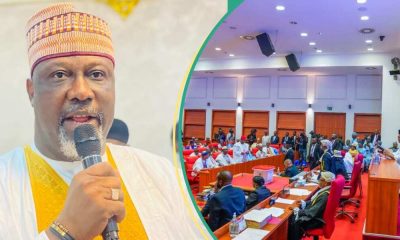

Nigeria’s national budgets now avenue to syphon public funds–Melaye
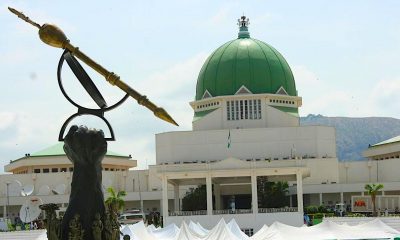

Lawmakers seek change to Parliamentary system of government


Tribunal annuls election of LP NASS member
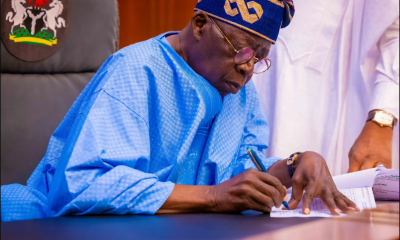

Ministerial list: Tinubu associates in the dark as deadline looms
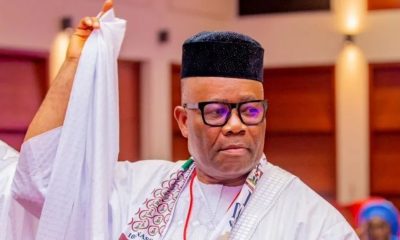

Akpabio announces first appointments
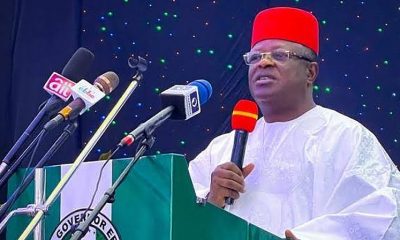

Gov. Umahi advocates zoning of leadership positions in NASS
Trending

 Health5 days ago
Health5 days agoDeclassified CIA memo explored concealing mind-control drugs in vaccines

 Entertainment6 days ago
Entertainment6 days agoSimi addresses resurfaced 2012 tweets amid online backlash

 Crime5 days ago
Crime5 days agoSenior police officers faces retirement after Disu’s appointment as acting IGP

 Education7 days ago
Education7 days agoPeter Obi urges JAMB to address registration challenges ahead of exams

 Health7 days ago
Health7 days agoNAFDAC issues alert on suspected revalidated SMA Gold infant formula

 Comments and Issues6 days ago
Comments and Issues6 days ago20 Critical Fixes to Save Nigeria’s Democracy from Electoral Fraud

 Football6 days ago
Football6 days agoMartínez ruled out of Everton clash with calf injury

 Latest6 days ago
Latest6 days agoICPC yet to respond to El-Rufai’s bail request as arraignment date looms

